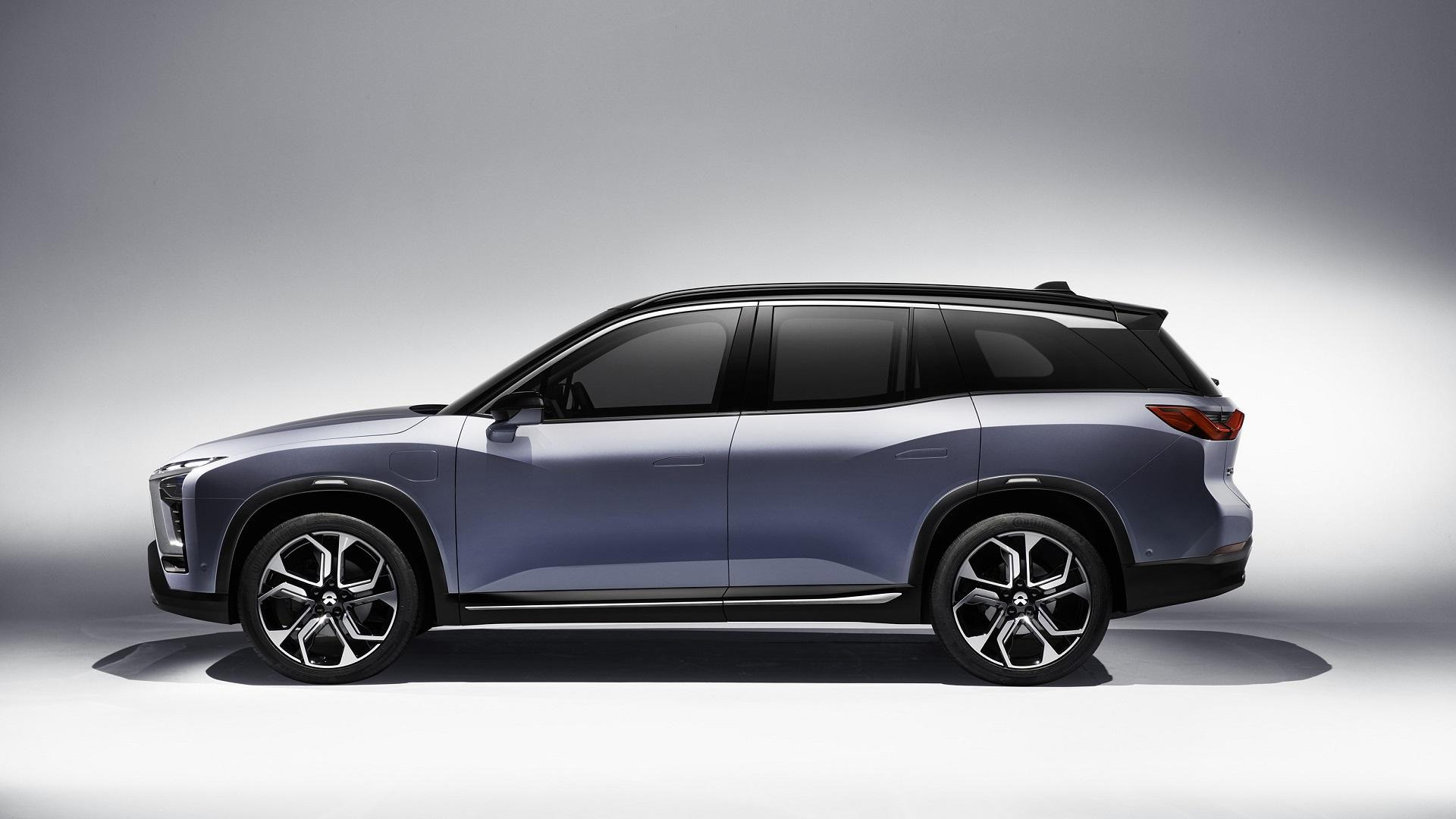

Chinese electric-car startup Nio claims to have delivered the first ES8 crossovers to customers. The ES8 is Nio’s first mass-market model, and these deliveries put the company ahead of numerous rival startups that have failed to deliver a single car. But Nio is still far from establishing a permanent place in the industry.
Nio announced the first deliveries via Twitter, showing photos of customers syncing cars to their smartphones, and holding the “smart keys” Nio uses in place of conventional key fobs. However, Nio did not disclose how many cars were delivered. Autoblog reports that vehicles are currently being made to order, for the Chinese market only. The company has been taking orders in China since December 2017.
The ES8 is a seven-seat crossover that boasts 643 horsepower and 619 pound-feet of torque, according to Nio. The company claims the ES8 will do zero-to-62 mph in 4.4 seconds and travel 220 miles on a charge. In China, the ES8 is significantly less expensive than a Tesla Model X, but mostly because the Tesla is subject to heavy import fees and taxes that the locally-produced Nio isn’t.
Nio was founded in 2014 as NextEV by entrepreneur William Li. It previously built an electric supercar called the EP9, which briefly held the production-car lap record at the Nürburgring. However, the EP9 was more of a showpiece than an actual production car. Nio only made 16 copies, priced at $1.48 million each.
Nio is one of numerous startups looking to repeat the success of Tesla. China’s status as the world’s largest new-car market and a political climate favorable to electric cars has led to the propagation of local startups like Nio and Byton, as well as Chinese backing of foreign startups like Faraday Future. By actually delivering cars to customers, Nio is ahead of most of these startups. But only producing cars to order isn’t a recipe for long-term success.
By 2020, Nio hopes to be selling an electric car with some degree of autonomous-driving technology in the United States. It’s unclear whether that vehicle will be the ES8, or a new model. It’s also unclear whether Nio can ramp up production quickly enough, or produce cars that meet the standards of U.S. consumers.